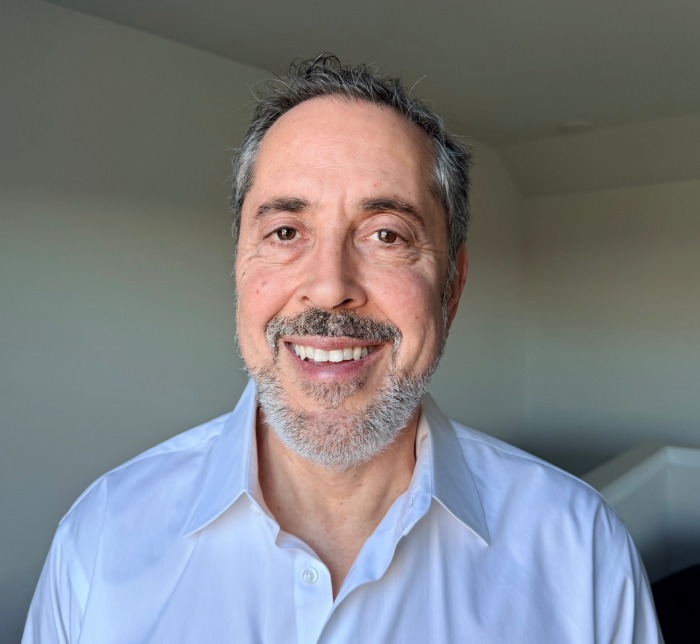A Patient’s Perspective on the Atlantic’s “The Triumph of New Age Medicine”

Photo on left by Stephen Webster, as seen in the Atlantic article: The Triumph of New Age Medicine
(Note: For those of you who missed David H. Freedman’s piece in the July 2011 edition of the Atlantic, I urge you to read it and the debate that followed. This post was originally intended as a response to appear on the Atlantic’s Web site, but that debate has since closed.)
I have employed an integrative approach to my health for over 20 years, since first diagnosed with chronic lymphocytic leukemia (CLL)—an incurable disease—at the age of 28. My course with cancer included a six-year clinical remission, made possible by the evidence-based, integrative oncology protocol I follow today.
This clinical (not pathological) remission followed an acute event with a coombs positive hemolytic anemia, night sweats and a low-grade fever that persisted for weeks. The remission was achieved without conventional interventions, though the best of western diagnostics and exams were utilized to monitor and stage my course. My medical history is chronicled through Harvard’s Dana-Farber Cancer Institute, by my longtime physician and current dean for clinical and translational research at Harvard Medical School.
So with this unique perspective as both an adherent and student of the evolution of integrative medicine, I offer the following takeaways in response to David Freedman’s piece, The Triumph of New Age Medicine, the posts and fracas that have followed in its wake; and my experiences as a staunch proponent and consumer of evidence-based integrative care.
(But first, a full disclosure: Through my company FON Therapeutics, I now work full time toward the advancement of evidence-based integrative medicine through innovative research models and clinic/business development.)
- The best of conventional allopathic care for emergency and acute care is simply unrivaled.
- Western diagnostics, including genetic and molecular labs and assays are incredibly accurate and continue to evolve.
- Every medical system has limitations; when it comes to treating chronic disease, modern medicine falls short.
- The terms alternative medicine, complementary and alternative medicine (CAM) and integrative medicine are not interchangeable, in fact they are mutually exclusive.
- Alternative medicine is used in lieu of conventional, allopathic therapies and can be quite dangerous. The term CAM, although still widely used, is a conflicted term and has essentially been replaced by the more accurate catch-all term, integrative medicine.
- Interventions or active agents that have an adequate science base in support of their use are evidence-based. Evidence-based interventions, both conventional and those informed by other healing modalities—many of them thousands of years old—form the basis of the term integrative medicine.
- The medical systems that include preventive medicine, holistic medicine, naturopathy, functional medicine, traditional Chinese medicine and Ayurveda are all rooted in a whole systems approach to prevention and wellness, and focus on the systemic causes of disease, not just symptoms. These medical systems focus on the whole person—mind, body and spirit.
- Every major cancer center and most large hospitals now have an integrative program, clinic or center. Many that don’t are planning to launch one in the near future. And those not taking action will lose market share to other centers or private practices in their area of service.
- The explosive growth in the teaching of evidence-based integrative medicine through university medical curriculum and fellowships will continue its ascent, as the supply of providers increase to meet health consumer demand.
- Practitioners, proponents and users of certain mindfulness-based stress reduction techniques such as guided imagery, Reiki, yoga aren’t dissuaded by the small (but growing) science-base around these types of mind-body interventions because they are completely safe, relax patients, often allow for the reduction of pain medication, and otherwise make patients feel good.
- The placebo effect is real and powerful; so is the body’s innate ability to heal. Many conditions can heal over time, regardless of the intervention.
- The estimated $50B annually spent by Americans on some form of natural products and integrative medicine services will only grow, driven largely by informed boomers, for whom taking a proactive approach to their health is viewed as a personal need and responsibility.
- The lion’s share of chronic conditions, including malignant disease, can be circumvented altogether through prevention. It is way easier to avoid disease than to cure it once it takes hold. Might this be our real silver bullet?
- Nutrition, exercise and behavior modification is not alternative medicine. It’s simply smart medicine.
- Mainstream physicians over the age of 40, on average, have had little to no education in medical school in the areas of nutrition, exercise physiology or lifestyle/behavioral modifications.
- Nutritionist and dietician consultations are only covered by insurance for those with type II diabetes and heart disease!
- Patients who understand the importance of nutrition, exercise, psychosocial support and behavior modifications on health outcomes seek their education from those in the best position to provide it; this rarely includes their primary care or conventional oncology teams. Many docs choose not to refer outside for these clear needs.
- As the population ages and folks are living longer, those with chronic, manageable disease will be shifted away from oncologists and other specialists to primary care doctors. Primary care docs have a long way to go to incorporate prevention, diet and exercise into their main toolkit. They need to be educated AND paid for providing this type of care/education. The economics and reward system must be modified.
- Several surgical interventions including coronary artery stenting, are being looked at more closely for their effectiveness. In some cases there is emerging evidence that points toward behavioral/lifestyle medicine as being just as effective if not more so than more invasive (and costly) procedures.
- Many pharmaceuticals are very effective; several are quite ineffective, can have contraindications and can otherwise be dangerous; some faulty study designs have evaded the FDA’s radar. Drugs are being taken off the market.
- Several nutraceuticals, botanicals and other natural ingredients are very effective; several are quite ineffective, have contraindications and can otherwise be dangerous. NCCAM is warning consumers of these findings.
- The gold standard double-blinded, randomized controlled trial for the exploration of single agents or interventions is ineffective for the study of comprehensive, whole systems integrative medicine, including traditional Chinese medicine and Ayurveda.
- Heretofore the federal government has not funded research that does not hew to the reductionistic model of blinded, randomized controlled trials. Therefore, synergistic whole systems integrative care has not been studied in a meaningful way.
- NIH’s NCCAM is starting to support multi-modality trials for integrative approaches to care, but under guise of comparative effectiveness research (CER). This is a step in the right direction.
- Some private clinics that provide alternative, CAM or integrative medicine services and products operate with models that do not accept insurance, with payment due when services are rendered; some clinics have boutique or retainer models, think MDVIP.
- The federal government, specifically Veterans Affairs and Department of Defense, provide acupuncture, Reiki and meditation for those with PTSD, allowing many to greatly reduce or eliminate their need for pain medication.
- Integrative services are typically low-tech, high touch, low-margin services when compared to costly surgical procedures, radiation therapy, chemotherapy, etc.
- Most of the larger centers attached to major institutions—top cancer centers and large hospitals—lose money by providing integrative services. They are typically subsidized by the institution itself and/or philanthropy. Many see the benefit of differentiating their clinics by providing these services; some can draw a clear line from offering integrative services and increasing clinic utilization for conventional, larger margin inpatient and outpatient services. Others see rising numbers in patient satisfaction polling.
- If a newly minted medical oncologist wants to become an integrative oncologist, he or she will most likely make less money than their traditional counterpart because of the current economics of providing such comprehensive, labor-intensive, low-tech, high touch care. A tough choice, especially given the typical debt load from medical school. Sure there are hucksters in alternative medicine—and within integrative medicine as well—but by and large these practitioners are well intentioned and simply want to help their patients get well. Despite what the skeptics say, most do not reap the same financial rewards as those practicing conventional medicine. And by the way, there are hucksters in conventional care as well.
- Dr. Dean Ornish’s research on prostate cancer and heart disease—although they included small numbers of participants—has shown that gene expression can be modulated by diet and exercise, and that certain types of disease can be reversed.
- Epigenetics, the emerging field that studies gene expression—what turns genes on and off—is showing that how we live affects why we get disease and how we can achieve or maintain wellness, even if we are predisposed to specific diseases or conditions. Nutrition clearly affects gene expression.
- The evidence base continues to grow for the effectiveness of acupuncture, which for 5000 years has been satisfying many. For those going through cancer treatment, acupuncture often provides relief of pain, nausea and fatigue, allowing patients to continue on their course of prescribed conventional treatments. When pain, nausea and fatigue are mitigated, the core therapies are more effective, resulting in better outcomes.
- Evidence is mounting that high levels of inflammation, stress hormones including cortisol, oxidation levels and insulin growth—comprising one’s biochemical milieu—plays a significant role in depressing the immune system, and allows malignant and other disease to take hold and steadily worsen.
- Integrative medicine done right is personalized medicine; 21st century medicine is steaming ahead in the direction of true, individualized care. These roads will soon intersect.
In Summary
More medical students are studying integrative wellness. More patients are demanding a predictive, preventive and participatory patient-centered approach to their health needs. The evidence base continues to build for certain integrative medicine modalities. The skeptics are aging and declining in numbers. And those clinics, centers and major institutions alike not providing these services in the future will find themselves at a competitive disadvantage.
As positive results stream in from the government’s mandated comparative effectiveness research on integrative medicine modalities—convincing payers (insurance companies) to start covering these services—and a concerted focus is directed toward preventive medicine and wellness—a sea change will occur and smart, accessible medicine will finally arrive for the average American.

Glenn Sabin, founder of FON and author of n of 1, is a nationally recognized thought leader who positions health innovators, enterprises, and organizations for sustainable growth. Leveraging deep experience in media, strategy, marketing, and business development—and his own compelling cancer journey—he champions personalized medicine and the generation of real-world data and evidence to help define a new, accessible standard of care.
Read Glenn’s story.




















